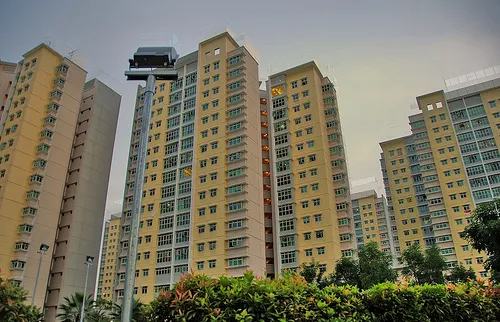
Impact of latest property measures likely to be more significant this time
Drop in transaction could be more than 30%.
Here's an analysis from Hang Seng Bank:
Hong Kong’s residential property market has been rebounding strongly. Average house prices advanced 16.3% in the first eight months in 2012, compared with a relatively muted growth of 5.1% in household income this year. Home prices are now 22% above the high seen in the fourth quarter of 1997. The effects of the Special Stamp Duty (SSD) imposed in November 2010 also seemed to be diminishing, with the number of transactions for resale between 12 to 24 months having increased from less than 100 cases in March 2012 to 218 in September 2012.
In an effort to curb non-end-user demand, the Hong Kong government announced two demand-side tightening measures last Friday (effective from 27 October) to limit asset bubble risks :
(1) Increase the Special Stamp Duty (SSD) by 5 percentage points and extend its enforcement period to 36 months;Hong Kong’s residential property market has been rebounding strongly.
Average house prices advanced 16.3% in the first eight months in 2012, compared with a relatively muted growth of 5.1% in household income this year. Home prices are now 22% above the high seen in the fourth quarter of 1997. The effects of the Special Stamp Duty (SSD) imposed in November 2010 also seemed to be diminishing, with the number of transactions for resale between 12 to 24 months having increased from less than 100 cases in March 2012 to 218 in September 2012.
(2) Impose an additional stamp duty of 15% on non-resident and all company buyers (Hong Kong-registered or foreign-registered) on top of the ad valorem Stamp Duty, regardless of their holding period.
The first measure on SSD is an extension of an existing one, but the second is new and quite drastic, which differentiates non-local buyers. Singapore has a similar approach, as foreigners have to pay 10% in additional stamp duties when they purchase a flat in the city, but Hong Kong’s rate will be higher, at 15%.
Both measures are a further attempt to curb demand for housing, as supply could not be increased in the short term.
They are also preventive measures to avoid the prospect of a destabilising correction further down the road as the government fears that the launch of QE3 by the US Federal Reserve and easing moves by other major central banks would lead to fund inflows.
The immediate impact of the two new measures will likely be a drop in transactions. While the additional tax burden is likely to deter investors entering the market, end-users will also take a wait-and-see approach in anticipation of a near-term price correction. If we take a look at the impact following the introduction of the SSD on 20 November 2010, initial market reaction was significant. Monthly transaction volumes in the secondary market dropped by 30% to 7,990 units within 12 months of the introduction of the SSD from 11,550 units in 2010.
Its impact on transactions could be more notable this time, given a weaker macro backdrop compared with that of 2011 and an increase in SSD is accompanied by an unexpected buyer’s Stamp Duty for foreign buyers.
The direction of property prices is still unclear as higher transaction cost may be passed on to the potential buyers, depending on the price sensitivity of both buyers and sellers.
As was witnessed in the past year, Hong Kong’s property price remains on an upward trend following the introduction of SSD two years ago. Property market in Singapore also remains largely intact even after the government has introduced an extra 10% stamp duty on foreign buyers last December
While the rising trend is likely to be arrested for now as confidence is hit by the new measures, room for correction is expected to be limited as the owners’ holding power is still relatively strong given the still low rates of interest. Sector-wise, the primary market might see larger price volatility over the secondary market as the primary market is more dependent on foreign buyers.
In a market where prices have been driven upward by supply shortage, demand-side measures alone are not likely to solve the fundamental imbalance. The long term policy response to a stable housing market should lie in the increase of housing supply. We therefore view that the government mainly assumes the role in removing short-term investors, which should make the sector’s development more sustainable in the long run.








![Cross Domain [Manu + SBR + ABF + ABR + FMCG + HBR + ]](https://cmg-qa.s3.ap-southeast-1.amazonaws.com/s3fs-public/styles/exclusive_featured_article/public/2025-01/earth-3537401_1920_4.jpg.webp?itok=WaRpTJwE)









 Advertise
Advertise


